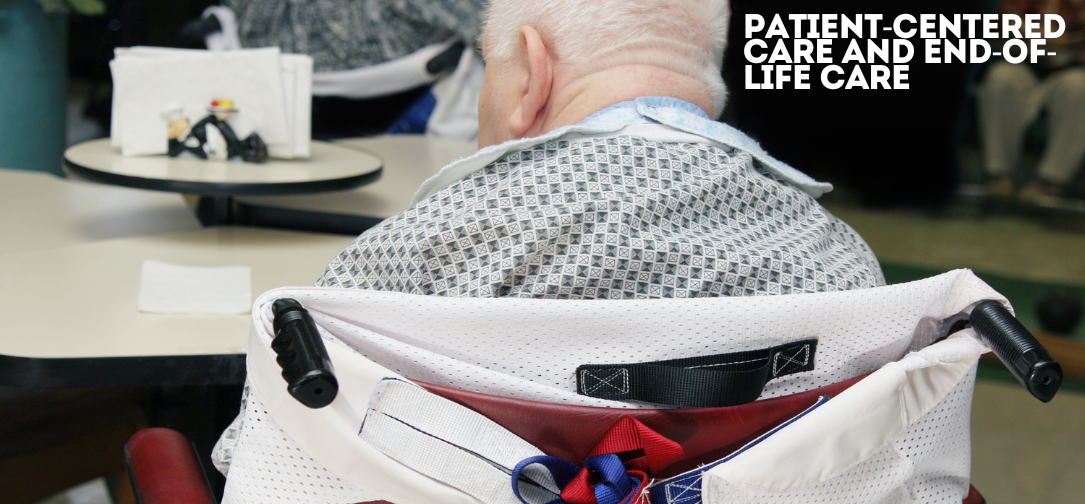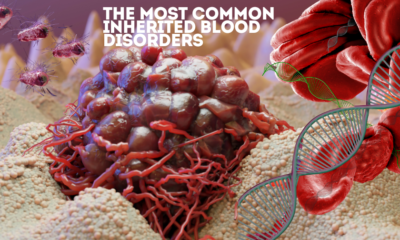Healthcare
Palliative and End-of-Life Care: Providing Comfort and Support

Palliative and end-of-life care is a vital aspect of healthcare that focuses on improving the quality of life for patients with serious illnesses and their families. It is centered around the principles of providing relief from pain, managing symptoms, and offering psychological, social, and spiritual support. This article delves into the complexities and nuances of palliative and end-of-life care, exploring its significance, approaches, challenges, and the emotional dimensions that both patients and healthcare providers navigate.
Understanding Palliative Care
Palliative care is specialized medical care aimed at alleviating the suffering of patients dealing with serious, chronic, or life-threatening illnesses, such as cancer, heart failure, chronic obstructive pulmonary disease (COPD), kidney disease, and neurological disorders like Alzheimer’s. Unlike curative treatment, which focuses on eradicating disease, palliative care seeks to improve the quality of life through symptom management, psychosocial support, and spiritual care.
Palliative care can be introduced at any stage of the disease process and is not restricted to end-of-life scenarios. It runs parallel to curative treatments, enhancing comfort and providing support alongside disease-directed therapy. As such, it is an interdisciplinary approach that involves a team of doctors, nurses, social workers, chaplains, and other specialists who work collaboratively to offer a support system tailored to the unique needs of each patient.
Core Principles of Palliative Care
Relief from Pain and Other Distressing Symptoms: Effective pain management is at the core of palliative care. This includes using medications like opioids, non-steroidal anti-inflammatory drugs (NSAIDs), and other adjunctive therapies. Beyond pain, palliative care addresses symptoms such as nausea, fatigue, breathlessness, insomnia, anxiety, and depression, utilizing both pharmacological and non-pharmacological methods.
Holistic Approach: Palliative care takes a holistic approach, recognizing that a patient’s emotional, social, and spiritual well-being is as important as their physical health. This is achieved by addressing the psychological distress caused by the disease, providing social support, and helping patients find meaning or comfort in their experiences.
n and Family-Centered Care: Palliative care involves both patients and their families in decision-making processes. Understanding the patient’s values, beliefs, and wishes is crucial for developing a care plan that aligns with their goals. Family members often play a significant role as caregivers, and palliative care also extends to supporting them, providing education, respite care, and bereavement support.
Interdisciplinary Team Approach: Palliative care relies on an interdisciplinary team to address the comprehensive needs of patients. This team typically includes physicians, nurses, social workers, psychologists, spiritual care providers, and sometimes dietitians and rehabilitation therapists. Each member contributes their expertise to create a coordinated care plan.
Communication and Advance Care Planning: Open, honest communication between healthcare providers, patients, and families is a cornerstone of palliative care. It involves discussing prognosis, treatment options, and potential outcomes, as well as facilitating advance care planning (ACP) and advance directives. This helps ensure that care aligns with the patient’s values and wishes, especially when they may no longer be able to communicate them.
End-of-Life Care: The Final Chapter
End-of-life care is a subset of palliative care that focuses on the final stages of life when a patient is nearing death. The goal is to provide comfort, ensure dignity, and support the emotional, social, and spiritual needs of patients and their families. End-of-life care often involves hospice care, a model of care specifically designed for patients who are no longer receiving curative treatment and are expected to live for six months or less.
Principles and Approaches to End-of-Life Care
Symptom Management at the End of Life: At the end of life, symptom management becomes more intensive. Pain control remains a priority, but other symptoms such as dyspnea, delirium, constipation, and terminal restlessness also require attention. Medications are carefully titrated to balance symptom relief and minimize side effects, and non-pharmacological interventions are also employed.
Comfort and Dignity: Ensuring comfort and dignity at the end of life involves addressing both physical and non-physical aspects of care. This may include managing symptoms like breathlessness, providing a peaceful environment, respecting cultural and religious practices, and involving family members in care decisions as desired by the patient.
Emotional and Psychological Support: End-of-life care addresses the psychological needs of both patients and their families. Patients may experience a range of emotions, including fear, anxiety, depression, and existential distress. Psychological support, counseling, and even pharmacotherapy may be needed to manage these complex emotions.
Spiritual and Cultural Considerations: Many patients and families draw strength and comfort from their spiritual or religious beliefs, particularly at the end of life. Healthcare providers often collaborate with chaplains, spiritual leaders, or cultural liaisons to ensure that spiritual and cultural needs are respected and integrated into care plans.
Family Involvement and Bereavement Support: Families are integral to end-of-life care. They often serve as primary caregivers and decision-makers and require support to navigate the emotional and practical challenges of caring for a dying loved one. Bereavement support, including counseling and support groups, is crucial to help families cope with grief and loss after the death of a loved one.
Challenges in Palliative and End-of-Life Care
Palliative and end-of-life care presents unique challenges that span medical, ethical, and social dimensions. These challenges include:
Communication Barriers: Difficult conversations about prognosis, goals of care, and end-of-life wishes can be challenging for both healthcare providers and patients. Patients and families may have different levels of understanding, emotional readiness, and cultural beliefs that impact these discussions.
Timing of Palliative Care Referrals: There is often hesitancy in initiating palliative care due to misconceptions that it signals “giving up.” Consequently, many patients are referred to palliative care services too late, limiting the potential benefits. Early integration of palliative care is increasingly recognized as beneficial for improving quality of life, even while curative treatment is ongoing.
Resource Constraints: In many healthcare settings, there are limited resources and trained professionals dedicated to palliative care, particularly in low- and middle-income countries. This creates disparities in access to high-quality palliative and end-of-life care.
Ethical Dilemmas: Palliative and end-of-life care often involves complex ethical decisions, such as determining the appropriateness of life-sustaining treatments, managing requests for hastened death, and addressing conflicts between family members and healthcare providers. Ethical frameworks and palliative ethics consultations can help navigate these situations.
Caregiver Burnout: Family caregivers play a significant role in palliative and end-of-life care but often face high levels of stress, fatigue, and emotional burden. Without adequate support, caregivers are at risk of burnout, which can impact the quality of care they provide.
Integration with Curative Care: Integrating palliative care with curative treatment can be challenging due to differing philosophies of care. Palliative care focuses on quality of life and symptom management, while curative care focuses on disease eradication. Bridging these approaches requires a cultural shift within healthcare settings and clear communication.
The Role of Healthcare Providers in Palliative and End-of-Life Care
Healthcare providers play a crucial role in delivering palliative and end-of-life care. They must be skilled not only in medical management but also in communication, empathy, and cultural competence. The following aspects highlight the multifaceted role of healthcare providers:
Comprehensive Assessment and Management: Providers must be adept at assessing and managing physical symptoms, psychological distress, and social needs. This involves regular assessment of pain and other symptoms, developing individualized care plans, and continuously adjusting interventions based on patient feedback and clinical judgment.
Facilitating Advance Care Planning: Providers should initiate conversations about advance care planning early in the disease trajectory. This includes discussing the patient’s values, preferences, and goals for care, and documenting advance directives, such as do-not-resuscitate (DNR) orders and living wills.
Communication and Empathy: Effective communication is key to building trust and fostering a therapeutic relationship with patients and families. Providers must be able to convey information about prognosis and treatment options clearly, respond to emotional cues with empathy, and support patients and families in decision-making processes.
Cultural Sensitivity and Competence: Providers need to understand and respect the cultural, religious, and spiritual beliefs that influence patients’ perceptions of illness, death, and dying. This requires cultural competence, an awareness of one’s own biases, and the ability to provide care that aligns with the patient’s cultural context.
Collaboration with Interdisciplinary Teams: Healthcare providers must work collaboratively with an interdisciplinary team to deliver holistic care. This involves effective communication and coordination with team members, including social workers, chaplains, psychologists, and other specialists.
Support for Caregivers: Providers should recognize the essential role of caregivers and offer support, including education, respite care, and connections to community resources. Acknowledging and addressing caregiver stress is critical to ensuring they can continue to provide care without experiencing burnout.
The Future of Palliative and End-of-Life Care
As the global population ages and the burden of chronic illnesses increases, the demand for palliative and end-of-life care will continue to grow. To meet this need, healthcare systems must adapt and innovate. Some of the future directions in palliative and end-of-life care include:
Expanding Access to Palliative Care: There is a need for increased access to palliative care services, especially in underserved and rural areas. This involves
training more healthcare professionals in palliative care, developing community-based palliative care programs, and leveraging technology for telemedicine and virtual consultations.
Integration into Primary Care: Palliative care should be integrated into primary care settings to ensure early identification of patients who could benefit from it. Primary care providers play a key role in initiating palliative care discussions and coordinating care across different settings.
Research and Evidence-Based Practice: Continued research is needed to advance the field of palliative and end-of-life care. This includes studying effective interventions for symptom management, understanding the needs of diverse patient populations, and exploring innovative models of care delivery.
Education and Training: Medical education should place a greater emphasis on palliative care training for all healthcare providers, including physicians, nurses, social workers, and allied health professionals. This includes training in communication skills, cultural competence, and ethical decision-making.
Public Awareness and Advocacy: Raising public awareness about palliative care and its benefits is essential. Efforts should be made to dispel myths and misconceptions about palliative care, promote advance care planning, and advocate for policies that support palliative care integration into healthcare systems.
Technology and Innovation: Technology has the potential to revolutionize palliative and end-of-life care. This includes telemedicine for remote consultations, digital tools for symptom tracking and management, and artificial intelligence for predicting patient needs and optimizing care plans.
Conclusion
Palliative and end-of-life care is a compassionate and holistic approach to caring for patients with serious illnesses. It emphasizes comfort, dignity, and support, recognizing the importance of addressing the physical, emotional, social, and spiritual needs of patients and their families. While challenges remain, including communication barriers, resource constraints, and ethical dilemmas, the field continues to evolve with a focus on expanding access, integrating care, advancing research, and leveraging technology.
By prioritizing patient-centered care and fostering a collaborative and empathetic approach, healthcare providers can ensure that palliative and end-of-life care truly reflects the values and wishes of patients, offering comfort and support during one of the most vulnerable times in life. As society continues to recognize the importance of palliative care, there is hope for a future where everyone facing serious illness receives the compassionate, comprehensive care they deserve.









































